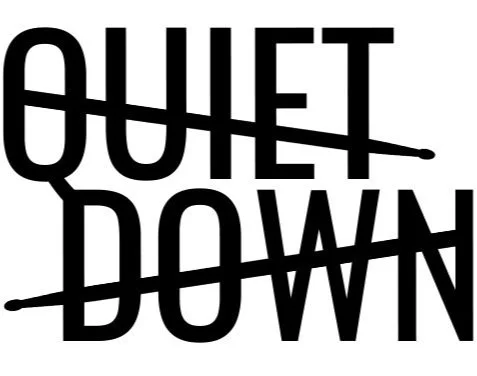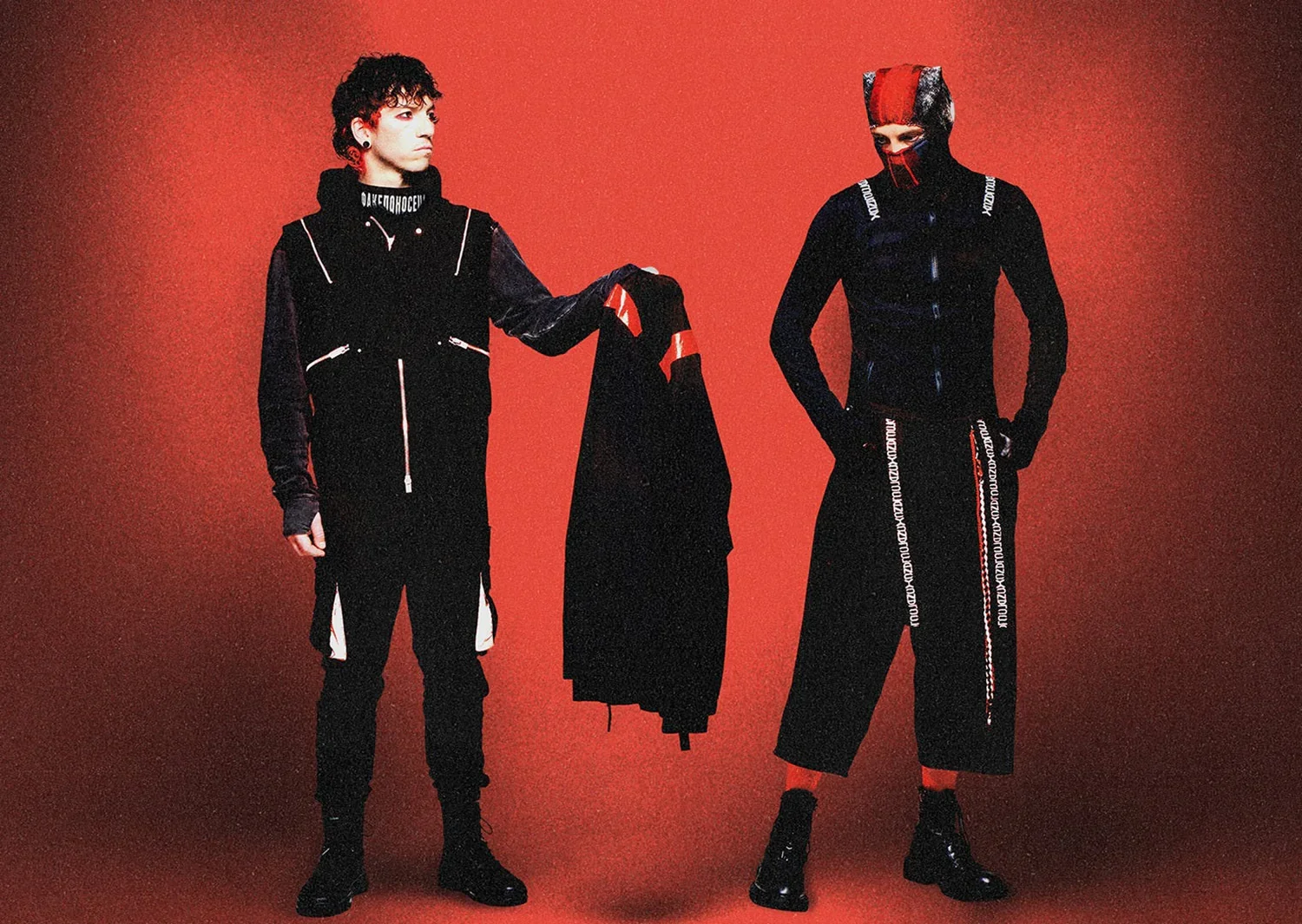Twenty One Pilots Breach Album Review
Breach Album Cover
Twenty One Pilots have always been more than a mainstream duo. Since Blurryface broke through a decade ago, Tyler Joseph and Josh Dun have written not only songs but chapters of a widely accepted and decorated story - one in the fictional world of Dema (representing the dark universe of mental health struggles) where characters like Clancy (Tyler Joseph, the narrator), The Torchbearer (Josh Dunn), The Banditos (those who have escaped Dema and also known as his support system, and fans), Nico (representation for his inner demon), and the Bishops (the harmful ‘voices’ in his head) mirror our own battles with insecurity, fear, and survival. Their music has thrived in the unraveling between our truth, our core identities, and elaborate world-building, casting listeners into a universe that feels as personal as it is symbolic. And it’s so healing.
Now comes Breach, the duo’s eighth album and the final act of the long-running narrative. The path here has been turbulent: the shadows of Trench, the pastel illusion of Scaled and Icy, and the unresolved questions of Clancy. With Breach, those threads tighten, tying the listeners into the burden of closure, or the illusion of it. Instead of a crisp ending, the record leans into the ambiguity of living with pain: the way it shifts from enemy to identity, from something to fight, to something that defines you. A breach of the peace.
This is an album that doesn’t offer an escape for our hurting, but presence. It digs into paranoia, loss, and the contracts we make with ourselves to keep going, then dares to suggest that intention— the decision to stay, to endure, to face the breach, might be the only freedom we get.
“City Walls” begins the cinematic journey with an epic build — a crescendoing echo chamber of semitone bends and hollow vocal shadows that pull listeners into both vulnerability and urgency. As distortion unfolds, Tyler’s voice cuts through with confrontation: “square up with me, I can take your right, throw a left.”
The song moves fluidly through anger, resentment, and desperation. As the chorus bursts open, Joseph’s vocals fall into gentle gravity like a feather tossed in the wind of a hushed storm: “I wonder where you are, I wanted you to show me, the way around those city walls.” The bridge then shifts into smooth, undulating swells, refracting an “ocean memory” of past storms. Over a delicate, shoulder-tapping piano line that tends to listeners false awakening, Joseph pleads, “Entertain my faith” a direct lyrical reference to "Holding Onto You” in their debut album, Vessel, cleverly and eloquently expressing the narrator’s deepest need to feel seen and understood despite their unbearable, personal struggle to believe that they’re deserving of any validation themselves. Astonishingly, the familiar tire screech sound effect heard in the beginning of "Heavydirtysoul" also occurs at the end of "City Walls,” as a reminder that this vicious cycle of our struggles is not truly broken and can continue in the future. Fans have pointed out that the band has used this sound effect at the end of the original version of "Goner" from the 2012 demo album No Phun Intended, to tie the story together.
“City Walls” is excruciating. It’s striking, visceral, and heartbreaking to listen to. Addictive hooks, unstable moods, and genre-bending touches underscore its thematic weight: the endless loop of systemic consequences born from our deepest pain. In the music video, Nico shows Clancy that in every moment that he felt hope, Nico was always there — a voice for his fears and doubts. The Banditos carry their torches to see in the dark and imply that it’s not about getting to the other side of the dark, but about borrowing and carrying your own light to lead you through.
Clancy conquers Nico and takes his place, representing an inevitable blur between resisting pain as something external and accepting it as part of who you are. While listening, I felt the story sharpen into a single question: Is this pain my enemy, or is it who I am?
As that question lingers, the album shifts tone, moving from the chaos of confrontation to something more reflective.
If “City Walls” is a confrontation, “RAWFEAR” feels like the first breath afterward. It’s a walking daydream in sunlight breaking through stormclouds, carrying the shimmer of rain on the pavement. In this airy soundtrack, Joseph suggests that what scares us the most may be what ultimately shapes us.
The production leans into presence and brightness without abandoning seriousness, layering reflective lyrics over a more fluid, hopeful rhythm. It’s the sound of learning to coexist with fear rather than escape it, turning vulnerability and fear into momentum with the chorus lyrics “Raw fear moves me.”
It’s an emotional reset, not an escape.
This reframe prepares the ground for the record’s next eruption, one that channels its restless energy into raw intensity.
In their third studio album, Vessel (2013), the track “Car Radio,” portrays Joseph being forced to face his feelings when his sense of security (car radio) was stolen, while Breach’s third track "Drum Show" is a reframing counterpoint of music being an outlet or coping kit for painful thoughts and memories. This song comes to life with a revving bass engine that jolts forward, halts, and then re-enters with heavy drums and eerie, aggravated guitars. The unsettling effect is like being thrown into motion only to be stopped short, then forced back into the fight.
The chorus is a fleeting escape, roaming solo on the freeway with the windows down, sipping the cool air of freedom and finally feeling seen. Tyler’s vocals float in that open space: “Even now, he’ll take the longer way home. Even now, he’ll never say so. He drives fast just to feel it. He drives slow if the song’s not over.” It’s hauntingly cinematic— a dreadful sensation of sleep paralysis chasing an out of reach sensation before it disappears.
The bridge softens into a lucid dream with Josh Dunn’s debut vocal “I’ve been this way” before it erupts with Joseph screaming “I want to change” as the track crashes into a heavy breakdown. The chorus returns with new weight, bleeding urgency into every line.
Breaking through glass barriers, I can see the narrator covered in cuts but unafraid to challenge the depth of the wounds. It’s both devastating and cathartic, embodying the album’s restless tension between despair and the fragileness of a heartbeat.
With its jagged textures and volatile energy, “Drum Show” doesn’t settle, it wrestles. The song lingers in that uncomfortable crevasse, refusing to resolve, as if to say that even the fight to feel is better than the emptiness of silence.
Midway through the album, “The Contract” shimmers with a fragile hope in the chilling presence of fear and confrontation. Hope here feels slippery, almost mistaken for ambition or aspiration, and is illustrated by a steadiness and unconventional expression of paranoia in the key of B flat major. Joseph threads a lyrical conversation over a wakeful synth, formulating a serendipitous flow against Dun’s sleek electronic drum tones. A piano melody glimmers like an echo chamber of the key signature's natural clarity, its brightness constantly weighed down by the tempo’s heaviness and tenacity.
The song closes with the aching admission: “I used to see. It felt so real, but now I plead, just take the deal. I promised you a contract.” It’s an abstract constellation of trust and betrayal - Clancy’s decision to breach the bishops’ coercive pseudo-contract and step into identity rather than illusion. On a more personal level, it mirrors the contracts we make with ourselves in moments of weakness: the lies we believe, the labels we carry, the cages we build. To breach those contracts, to reject the false names pain tries to give us, is its own kind of freedom. Maybe the most critical step in recovery.
The album continues to drive forward with the sky beginning to clear and the night beginning to fall. The car slows to a stop and a breakthrough of stars scatter across the darkness above protecting and guiding the life below with its blanket of light. It’s a closing track that feels like a slow dance with grief, Joseph’s delicate voice turning sadness into raw agony: “I am starting it all over once again.”
The song’s melody mirrors “Truce” from Vessel - a direct reversal that thematically collapses past and present into a cycle of relapse and renewal. It’s a devastating gesture: the reminder that this battle doesn’t end, it restarts. Drowning in heartache, the track acknowledges that healing often feels like beginning again, endlessly.
But “Intentions” also holds a contradiction. In Clancy (2024), Joseph confessed “intentions don’t mean much.” Here, he reverses it: “Intentions are everything.” It’s a paradox, but an honest one. Failure can happen despite good intentions, and yet, those same intentions are the compass that point us toward growth. The song closes not with certainty, but with a bold truth: that intention itself may be the only light we have to guide us through the dark.
Breach doesn’t resolve the story so much as it cracks it open one last time. The lore may have reached its end, but the emotions it wrestles with— fear, doubt, presence, intention— refuse to be tied up neatly. That, I think, is the point. Closure here isn’t a curtain call; it’s the harder choice to remain, even when the fight leaves you broken, and reaching in the dark.
Listening, I kept circling the question that first surfaced in “City Walls”: Is pain something I battle, or is it who I am? By the end, the answer still flickers between both— pain as an enemy and an identity, a wound and a mirror. In “The Contract,” we hear what it means to breach the lies and false names we give ourselves in moments of weakness. In “Intentions,” we’re left in the contradiction that intentions may fail us, yet they are everything; the only compass pointing us toward growth.
And maybe that’s the harsh reality Breach leaves behind— that freedom isn’t found in conquering the breach, but in choosing to stand inside it. To sit with the pain. To accept that recovery isn’t final, but cyclical. And to decide, again and again, that even fragile intentions - imperfect and human, are enough to carry us forward.
K E E P U P W I T H


